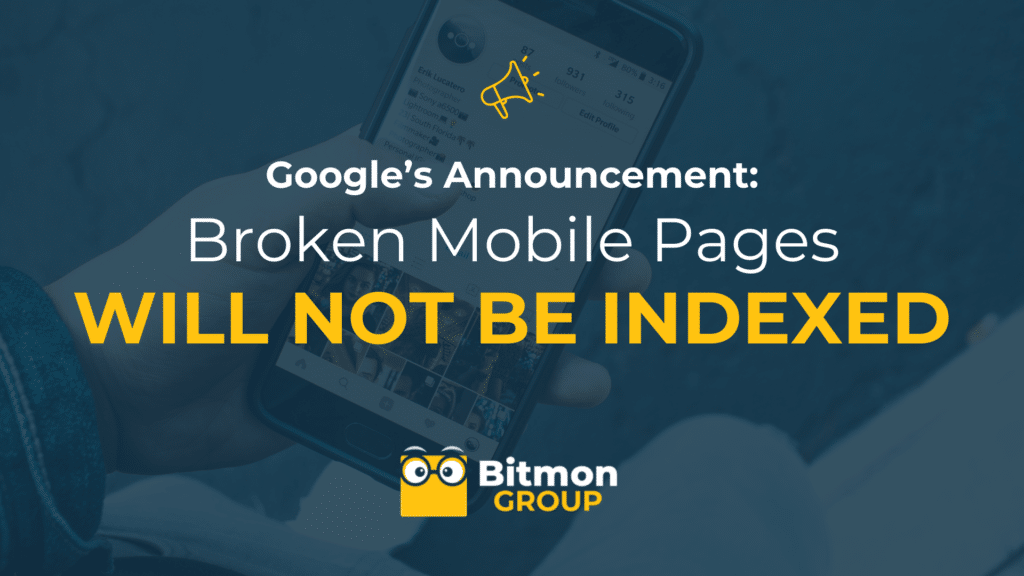Recently, Google announced a significant update affecting how websites are indexed. As part of their ongoing efforts to enhance user experience, Google will no longer index mobile pages that are broken or have usability issues. This means that if your website’s mobile pages are not functioning correctly, they won’t appear in Google search results. Here’s why this update is crucial and what you can do to ensure your site remains indexed.
Understanding the Update
Google’s focus on mobile-first indexing means that the mobile version of your website is the primary version considered for indexing and ranking. This shift reflects the increasing number of users accessing the web via mobile devices. However, this update introduces stricter measures: if your mobile pages have significant issues such as slow load times, broken links, or poor navigation, they won’t be indexed at all.
Why Mobile Usability Matters
User Experience: Poor mobile usability frustrates users, leading to higher bounce rates and lower engagement. This not only impacts your site’s performance but also your brand reputation.
SEO Rankings: Mobile usability is a critical ranking factor. Websites that offer a seamless mobile experience are more likely to rank higher in search results.
Traffic and Revenue: Not being indexed means your site won’t appear in search results, leading to a significant drop in organic traffic and potential revenue.
Steps to Ensure Your Mobile Pages are Indexable
To keep your mobile pages indexed and your site visible in search results, follow these best practices:
Responsive Design: Ensure your site is responsive, adjusting seamlessly to different screen sizes and devices.
Regular Testing: Use tools like Google’s Mobile-Friendly Test to identify and fix any issues.
Optimize Page Speed: Improve load times by optimizing images, leveraging browser caching, and minimizing code.
Fix Broken Links: Regularly check for and repair broken links to prevent 404 errors.
Simplify Navigation: Make sure navigation is intuitive and user-friendly.
Optimize Content: Ensure content is easy to read on mobile devices with larger fonts and concise paragraphs.
Check Google Search Console: Use this tool to monitor mobile usability and address any reported issues promptly.
Implement AMP: Consider using Accelerated Mobile Pages (AMP) for faster load times and better performance.
Monitoring and Maintenance
Regularly monitoring your site’s performance using analytics and search console tools is essential. By keeping an eye on mobile usability issues and addressing them promptly, you can maintain your site’s visibility in Google search results.
Conclusion
Google’s announcement regarding broken mobile pages highlights the importance of mobile usability in website indexing. Ensuring your mobile pages are functional and user-friendly is critical for maintaining your site’s visibility. By following best practices and regularly monitoring your site’s performance, you can ensure your website remains indexed and continues to attract traffic from mobile users.
For more detailed insights, you can refer to the sources that discuss these changes in depth:
Search Engine Land’s coverage on Google’s March 2024 core update
Zutrix’s guide on common Google indexing issues
Search Engine Journal’s insights on fixing indexing issues







